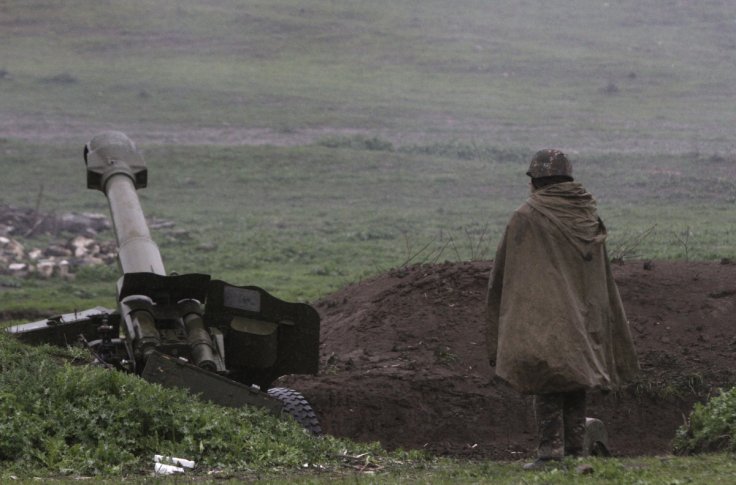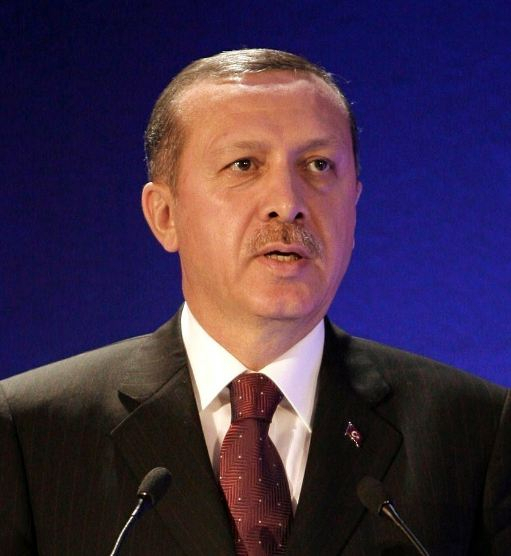Ambitious Turkey is taking advantage of the worsening conflict between Azerbaijan and Armenia by deploying Syrian mercenaries on the battle lines. By doing so, Ankara is delving into another fresh conflict with Moscow, analysts have said.
The development comes even as the conflict between Armenia and Azerbaijan has escalated, with more fighting taking place overnight.
Ankara has deployed Syrian rebel fighters as border guards in Azerbaijan, the Guardian reported, citing several volunteers who have signed up. Turkey, which is already engaged in a power struggle with Russia in Syria and Libya, is pushing the Russians hard on Nagorno-Karabakh with the latest move, the report says.
The mercenaries who have signed up for action in Nagorno-Karabakh have joined a private Turkish security company, which will take them to Turkey before flying them off to Azerbaijan, the report says. The fighters who Guardian spoke to said they joined the mission after spending years in poverty in a rebel-controlled pocket in Syria.

Open Support for Azerbaijan
The latest clashes happened with Azerbaijan saying it will retake the disputed Nagorno-Karabakh by force, and the Armenians vowing they would fight until the end to protect the territory. Both the countries have declared emergency martial law, and troop mobilization is in full swing anticipating a full blown conflict.
Russian President Vladimir Putin spoke to Armenian Prime Minister Nikol Pashinyan, while Turkey has openly offered full support to Azerbaijan. The conflict is likely to escalate as there are loud calls in Azerbaijan capital Baku to retake the ethnic Armenian Nagorno-Karabakh enclave from the Armenian control.
The open support of Turkey for the Azeri move to retake Nagorno-Karabakh is in stark contrast to the voice of caution raised by world leaders. While the UN and world leaders called for de-escalation, Turkish President Recep Tayyip Erdoğan has egged on Baku openly. "The Turkish people stand with their Azeri brothers with all our means, as always," he tweeted. He also said Armenia is the biggest threat to regional peace, and accused other nations of double standards and insufficient reaction against 'Armenian attacks.'

Recruitment Started a Month Ago
The report says that the recruitment drive started a month ago, before the first shots were fired in Nagorno-Karabakh in the latest bout of clashes. KThat is a princely sum compared with the 450-550 Turkish lira a month Ankara is paying Syrian rebels who fight against Syrian president Bashar al-Assad.
Meanwhile, Turkey has denied it is recruiting mercenaries from Syria for war in Nagorno-Karabakh. "We strongly reject such claims. Our support consists of military advice and training of Azerbaijan's armed forces ... The Turkish ministry of defence does not deal with recruiting or transferring militiamen anywhere in the world," the defence ministry said, according to the Guardian.
What's Nagorno-Karabakh Conflict?
Nagorno-Karabakh is a primarily ethnic Armenian region but it is situated in the territory of ex-Soviet Azerbaijan. As per international law Nagorno-Karabakh is part of Azerbaijan but the majority ethnic Armenians have established self-government with the support of Armenia.
The clashes in Nagorno-Karabakh to end the Azerbaijani rule escalated in 1991. The clashes resulted in the death of nearly 30,000 people, and eventually Azerbaijani troops were pushed out of Nagorno-Karabakh, a mountainous province inside the Azerbaijan territory.

A ceasefire was arrived at in 1994, and by then the Nagorno-Karabakh separatists, supported by Armenia, controlled the region as well as seven surrounding Azerbaijani territories. Though the ethnic Armenians in Nagorno-Karabakh declared independence after driving out the Azerbaijani troops, the move did not win international support. By the time an internationally brokered ceasefire was agreed in 1994, ethnic Armenians controlled almost all of Nagorno-Karabakh, plus some surrounding Azeri districts. This gave them a buffer zone, while also helping them maintain a land connection to the Armenian mainland.
Though the 1994 ceasefire continues to hold in a technical sense, violence continued along Nagorno-Karabakh's border with Azerbaijan, as well as on the Armenia-Azerbaijan international border.








